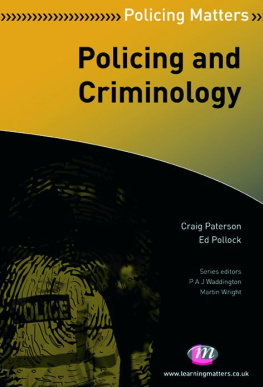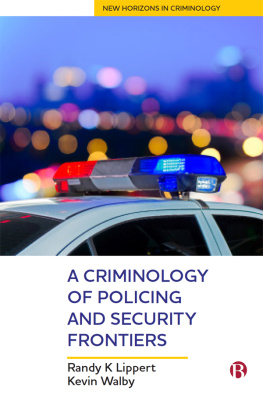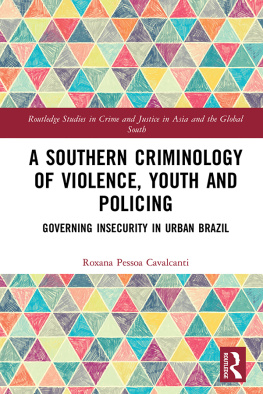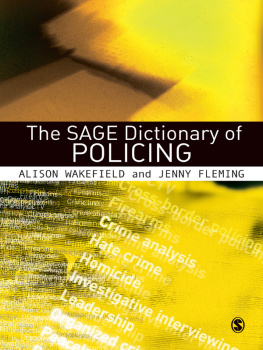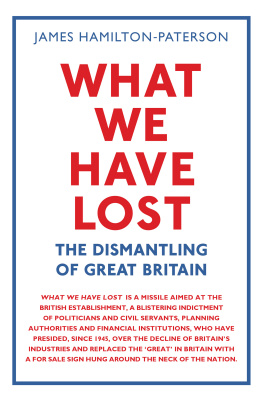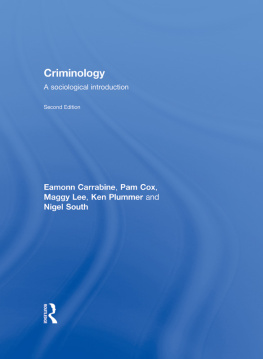First published in 2011 by Learning Matters Ltd
All rights reserved. No part of this publication may be reproduced, stored in a retrieval system or transmitted in any form by any means, electronic, mechanical, photocopying, recording, or otherwise, without prior permission in writing from Learning Matters Ltd.
2011 Copyright Craig Paterson and Ed Pollock
British Library Cataloguing in Publication Data
A CIP record for this book is available from the British Library.
ISBN: 978 0 85725 413 9
This book is also available in the following ebook formats:
Adobe ebook ISBN: 978 0 85725 4 153
EPUB ebook ISBN: 978 0 85725 4 146
Kindle ISBN: 978 0 85725 4 160
The rights of Craig Paterson and Ed Pollock to be identified as the Authors of this work have been asserted by them in accordance with the Copyright, Design and Patents Act 1988.
Cover and text design by Toucan Design
Project Management Newgen Publishing and Data Services
Typeset by Newgen Publishing and Data Services
Printed and bound in Great Britain by Short Run Press Ltd, Exeter, Devon
Learning Matters Ltd
20 Cathedral Yard
Exeter EX1 1HB
Tel: 01392 215560
info@learningmatters.co.uk
www.learningmatters.co.uk
All weblinks and web addresses in this book have been carefully checked prior to publication, but for up-to-date information please visit the Learning Matters website, www.learningmatters.co.uk.
An introduction to criminology
CHAPTER OBJECTIVES
By the end of this chapter you should be able to:
- identify the historical links between policing and criminological study;
- identify essential criminological tools and their role in researching the police and policing;
- identify different criminological theories;
- understand the role of criminological study in researching the police and policing.
LINKS TO STANDARDS
This chapter provides opportunities for links with the following Skills for Justice, National Occupational Standards (NOS) for Policing and Law Enforcement 2008.
AE1 Maintain and develop your own knowledge, skills and competence.
CA1 Use law enforcement actions in a fair and justified way.
HA2 Manage your own resources and professional development.
Introduction
Policing has been a subject of social inquiry throughout the history of the United Kingdom (from now onwards the UK), across Europe, and further afield. From the Knights Templar in the Holy Land during the Crusades to the Spanish Inquisition in early modern Europe, history provides us with numerous examples of famous (and infamous) groups and individuals whose job it was to police social order. The study of policing, therefore, pre-dates criminology and criminologists by centuries. In contemporary societies, the Police Service, as an institution, and policing, as a key social function, are key components of democratic social order across the world. This societal position makes careful scrutiny of the role and function of the Police Service essential, and criminologists have taken it upon themselves to develop numerous critiques of the ways in which the police and policing operate within societies.
This book provides an introduction to the criminological study of policing which, in the Anglo-American context, emerged during the 1960s and has remained a core constituent of criminological study ever since. Over the past decade, a new academic area of study has come to the fore, police studies, which draws on criminological study and other academic subjects. The following pages will provide you with a guide to the broad contours of police studies and criminology plus the contribution each can make to understanding developments in policing in the UK and elsewhere.
Criminological inquiry revolves around two central areas.
- Analysis of the causes of crime.
- Evaluation and analysis of methods of crime control.
This twin focus on why people commit crime and how societies manage crime problems provides the bedrock of the academic discipline of criminology. Criminological study of the police emerged out of the social conflict of the 1960s, which bore witness to an acceleration in social change that was accompanied by urban unrest, political protest and new social problems for the police to manage. Early studies identified a perception of the polices role as crime fighters, both within the police and from outside, while empirical studies (the cornerstone of criminological inquiry) provided evidence of the polices role in maintaining social order and keeping the peace. It is important to note at this stage that the focus of this book is policing and criminology in the UK. Policing in the UK is split into three jurisdictions: England and Wales, Scotland, and Northern Ireland, although there are a number of national agencies that operate across all three areas. Although consideration is given of policing institutions and processes across the world (particularly in ), this is mainly used to provide analytical context which helps us understand developments in the UK.
PRACTICAL TASK
Before you read on any further, have a think about what the main crime problems are in your area. Now have a look at your local crime and policing website (www.police.uk/). Are the crime problems that the statistics highlight the same as the ones you imagined?
The purpose of the book
The book highlights the links between the academic discipline of criminology, developments in policing and the police profession to bridge the gap between academic study and police practice. In order to do this, the book examines the development of the Police Service and their changing role in society. Links are made between criminological theory and police responses to offending and disorder, and the reader is introduced to a range of policing theories, the role of values and ethics and the multi-agency context of twenty-first century policing. The book provides an introduction to criminological perspectives on the development of the Police Service in England and Wales over the past 200 years alongside an overview of key contemporary themes in policing. Key topics include the changing role of policing in society, police governance and accountability, policing philosophies and strategies, the pluralisation of policing and the globalisation of policing. The book also examines the role criminology has played in the police reform and modernisation agenda and the shift to evidence-led approaches to policing. It also provides key information and learning materials for students on criminology and policing courses.
The structure of the book
This chapter introduces readers to the academic subject of criminology and its relationship with policing. A brief history of policing research is provided, and this is followed by an overview of links between criminological theories and developments in policing functions. looks specifically at the contribution criminology has made to the study of policing during the second half of the twentieth century and the development of police studies over the past decade. Links will be made to the crisis of legitimacy that the police experienced during the 1970s and 1980s in order to provide context for the later chapters on police reform.



